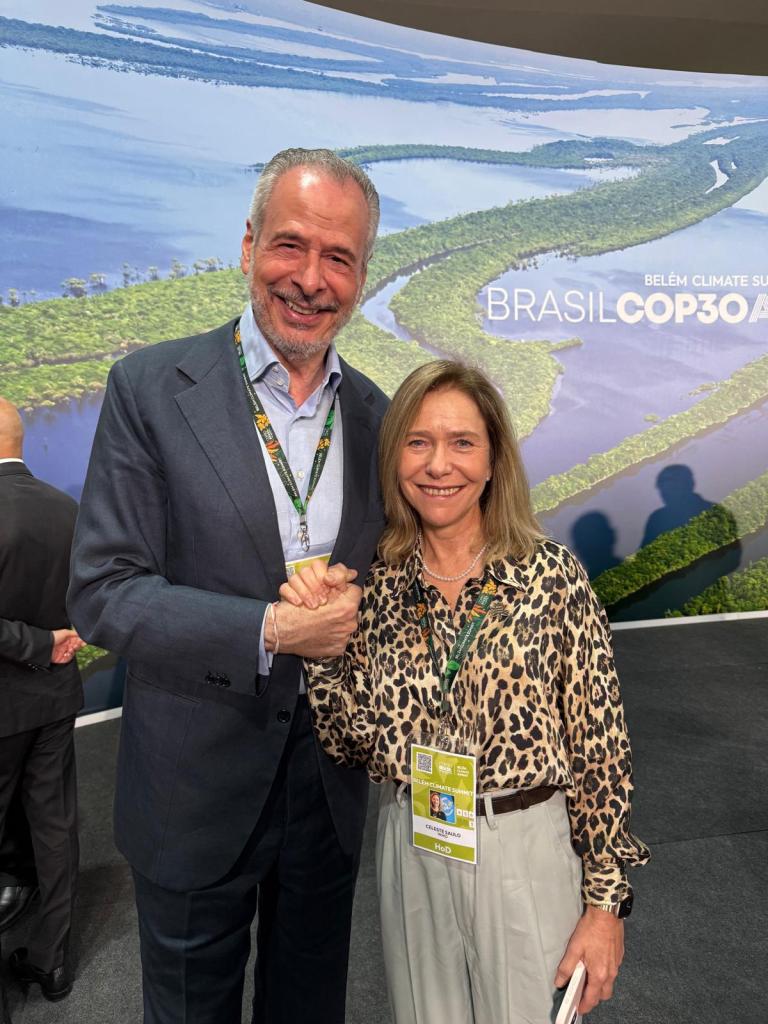Thousands of diplomats, climate experts and civil society representatives have converged in Belém, in Brazil's Amazon, for COP30 - the latest and most critical round of UN climate negotiations.
The choice of Belém, at the edge of the world's largest tropical rainforest, symbolizes the urgency of the task ahead - to cut greenhouse gas emissions, preserve the vital role of forests as a carbon sink and to advance a "just transition" to cleaner economies, Brazilian President Luiz Inácio Lula da Silva told the opening ceremony.
Ahead of COP30, President Lula launched the Tropical Forests Forever Facility to reward countries that succeed in halting deforestation. Aiming to make forests worth more standing than cleared, it could channel up to $4 billion a year to as many as 74 nations.
The COP Presidency has also insisted that science will take centre stage - and for this reason invited WMO Secretary-General Celeste Saulo to make the opening statement at the Belém Climate Summit on 6 November.
"This will be a COP which will hear and believe in science. It will be the COP of Truth," said COP President André Corrêa do Lago.
COP30 takes place ten years after the conclusion of the historic Paris Agreement to hold "the increase in the global average temperature to well below 2°C above pre-industrial levels" and pursue efforts "to limit the temperature increase to 1.5°C above pre-industrial levels."
The Paris Agreement has indeed been bent downwards because of the Paris Agreement. But not by nearly enough and the challenge is huge.
State of Climate
"The record increase in greenhouse gas levels means that it will be virtually impossible to limit global warming to 1.5 °C in the next few years without temporarily overshooting the Paris Agreement target," WMO Secretary-General Celeste Saulo said.
"It is essential to bring temperatures back down to 1.5 °C by the end of the century and to keep the temporary overshoot as small, as short and as safe as possible," she said in a keynote presentation to Earth Information Day .
WMO's State of the Climate Update shows that 2025 is set to be the second or third hottest year on record. Ocean heat is at record levels, the long-term rise in sea level continues and sea ice and glaciers are tracking near historic lows.
Extreme weather - as witnessed most recently by devastating tropical cyclones in Jamaica, the Philippines and Viet Nam - is inflicting increasing economic losses.
But there is progress - real and measurable, Celeste Saulo told Earth Information Day, which hears updates on the state of the global climate, the global climate observation system, as well as gaps and emerging opportunities in advancing and sustaining systematic observation.
"Across the globe, early warnings are saving lives. Since 2015, the number of countries with multi-hazard early warning systems has more than doubled. We are closing gaps in the world's most vulnerable regions, helping communities act before hazards strike," she said.
Climate services are transforming decision-making. Two-thirds of National Meteorological and Hydrological Services now provide climate information - from heat-health alerts to agricultural forecasts, she said.
Renewable energy capacity is growing faster than ever before. Climate intelligence can ensure that clean energy systems are reliable, flexible, and resilient.
"Science is not only warning us; it is equipping us to adapt," Celeste Saulo told negotiators.

Action Agenda
Under Brazil's presidency, COP30 will revolve around an action agenda of 30 key goals, each driven by an 'activation group' tasked with scaling up solutions.
The effort has been dubbed a mutirão - an Indigenous word meaning "collective task."
At the heart of talks in Belém will be the Baku-to-Belém Roadmap Report for $1.3 Trillion , prepared by the COP29 and COP30 presidencies.
It sets out five priorities for mobilizing resources, including boosting six multilateral climate funds, strengthening cooperation on taxing polluting activities, and converting sovereign debt into climate investment - a move that could unlock up to $100 billion for developing countries.
"Lamenting is not a strategy. We need solutions," said Simon Stiell, Executive Secretary of the UN Framework Convention on Climate Change (UNFCCC).
"Not one single nation among you can afford this, as climate disasters rip double-digits off GDP," he said. "The economics of this transition are as indisputable as the costs of inaction," said Mr Stiell, noting that investment in clean energy and infrastructure will hit another record high this year - with investments in renewables outstripping fossil fuels two to one.
Science for Climate Action
During COP30, the Science for Climate Action Pavilion will serve as a meeting point between science and policy. Throughout the summit, the Pavilion will host over 45 side events, including high-level panels, roundtables, immersive workshops, and the launch of scientific reports, featuring more than 200 experts and international representatives from governments, multilateral organizations, academia, local communities, and the private sector.
All events will be livestreamed via the Science for Climate Action Pavilion website , expanding access to and dissemination of scientific knowledge worldwide.






